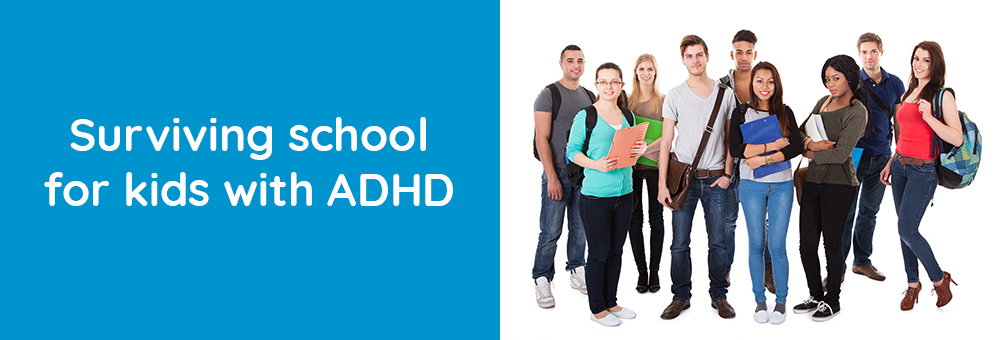
We know that for many pupils with ADHD, going through the education system can be challenging. Here is some help for parents.
We know that getting homework done is often a challenge for children with ADHD. Here are some homework tips from our friends at Can Do Courses.
The reason children do not want to go to school can be several. A research study on the subject lead by Thambirajah et al, (2008:33) explained the onset of school refusal as follows: “School refusal occurs when stress exceeds support, when risks are greater than resilience and when ‘pull’ factors that promote school [compared to] non-attendance overcome the ‘push’ factors that encourage attendance”.
As soon as this occurs, parents need to engage with their child or teen to try and get to the bottom of why they do not want to go to school. Some children may be able to say why they do not like school, whilst others may not be able to explain it. We would also recommend that you go and discuss it with more than one teacher at school to see if they noticed particular difficulties at school. There could be a wide range of reasons such as the child finds the school work too difficult and they are not sufficiently supported, others may find they are bullied or excluded from playground games, whilst other with sensory issues may find it too noisy or overwhelming.
The parent support group, Not fine in school, produced this excellent guide with lots of useful guidance for teachers on children who avoid school: nfis-school-guide-to-supporting-a-child-when-they-struggle-to-attend-school-v-2.
In addition, there is also Square Peg, which explains school refusal through an animation from a child’s perspective.
IPSEA have a wealth of information and here talk about what help is available for students sitting exams.
It is very important for parents to understand on what basis the school has excluded the child (fixed or permanent) and also the circumstances behind the exclusion. Exclusions from school is very serious as it interrupts a child’s education and also has social implications in terms of how it is viewed by their peers.
Borough information about school exclusions can be found here.
Our recent webinar run by Sheldon Snashall, Lead Officer for Children Missing Education, AfC discusses the Borough’s support for excluded children and school avoidance – it can be found here.
The Communities Empowerment Network [http://cenlive.org/advice ] provides free educational advice, support and representation to parents whose children have been affected by school exclusion.
We also recommend the group Fresh Start in Education that was set up to help children and teenagers who have been excluded. Providing support to the child or teen is very important as it can have a negative impact on their self esteem. On their website they have a section for parents too.
If your child or teens has been excluded and is due to go back into school, we suggest you contact the school to discuss with them how they will support the child pastorally on their return to school on the first day back. Similarly, parents also should prepare their children for the return to school in a positive and supportive way as they may not want to admit it but there will no doubt be nervousness about returning to school in terms of how teachers will treat them and also how their peers will view them. Encourage your child to ask for help if they find school overwhelming and have a plan as to who is providing pastoral support for them and who they can reach out to so that they do not feel isolated. Also see general guidelines on returning to school below.
Read this fantastic guide for dealing with exam stress.
Find tutors who specialise in ADHD and SEN here: https://www.fleet-tutors.co.uk/sen/
Access 1st offers needs assessments, advice and support for ADHD students in Higher Education.
Try our guide on helping kids return to school after a break or holiday: Returning to school: Children with ADHD – Advice for parents. August 2020
